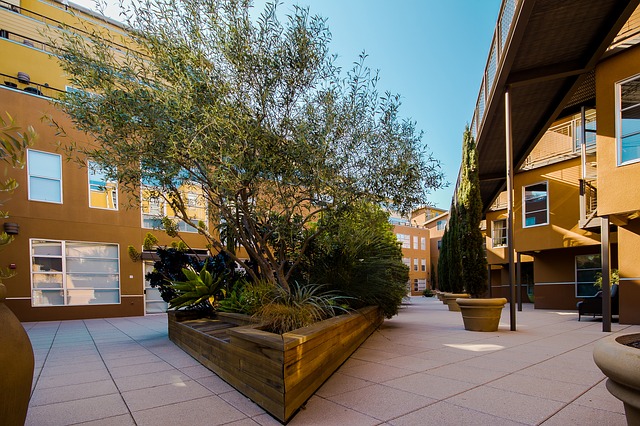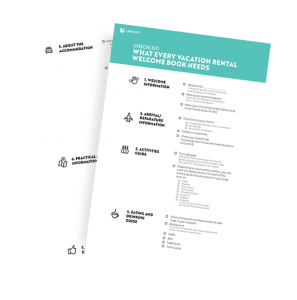- August 22, 2014
- Posted by: @dmin
- Category: Property Managers

As property managers, we often walk a fine line between serving condo residents and enforcing the rules of our communities. So, the question arises: how do we keep condo residents happy and satisfied while still being an effective property manager in Toronto?
If you aren’t sure of the importance of this question, consider this:
Two-thirds of current condominium owners who responded to a recent survey are satisfied with their condo property management services,
but 7 out of 10 respondents support the regulation of companies and individuals involved in condominium property management.
A majority of those surveyed also indicated they would be comfortable with regulation via a government- or industry-led body.
As someone involved in the business, you know that regulations often come with significant compliance costs, which can make it harder and harder for you to serve your clients. But on the other hand, are these respondents’ concerns justified? Should condo property managers be subject to a licensing or a regulatory body? In Ontario, the Government along with many stakeholders in the industry has been working on re-writing the Ontario Condominium Act as well as legislation for the licensing of condo managers.
Repairs and maintenance, when performed correctly, can end up saving the community thousands of dollars over the long run. When condominium management is poorly done, improper repairs can result in expensive replacements that could cause residents to pay more in fees or even a special assessment to cover the additional costs.
Taking these facts into account, you can begin to see why residents might feel concerned and interested in supporting the idea of licensing for condo managers. That said, there are still best practices that you can follow in order to ensure your residents are working with you instead of against you when it comes to maintenance and upkeep issues.
Walking the Line
When you are a property manager in Toronto, you know that your first duty is to ensure the proper education of your residents as to how to take care of the common areas: grassy spaces, parking lots, hallways, and any other shared facilities must be carefully monitored to ensure compliance with the rules.
How do you educate your residents properly without coming across as bossy or overly pushy? This is an area of tension you must consider: condo residents are paying to live on the premises and own their own units, but still have to abide by the rules in order to live together harmoniously. There are a few strategies that are effective when navigating these sometimes difficult subject areas.
1. Provide a welcome packet to new residents.
 Included in the welcome packet should be copies of the rules and regulations, as well as the bylaws for the association. A good idea is to have a form included that must be signed and returned indicating the resident read the rules and regulations and agrees to comply with them. Welcome packets can also include other information in order to make new residents feel comfortable and cared for in their new homes. You might include a letter introducing the condominium management team and current association members, as well as a schedule of upcoming community events. Residents also like getting oriented in their new neighbourhoods. A list of nearby amenities, including shopping areas and restaurants who deliver to the condo complex, is a nice touch and can make the delivery of the welcome packet feel less like the imposition of a bunch of new rules and more like an informative and helpful packet of information.
Included in the welcome packet should be copies of the rules and regulations, as well as the bylaws for the association. A good idea is to have a form included that must be signed and returned indicating the resident read the rules and regulations and agrees to comply with them. Welcome packets can also include other information in order to make new residents feel comfortable and cared for in their new homes. You might include a letter introducing the condominium management team and current association members, as well as a schedule of upcoming community events. Residents also like getting oriented in their new neighbourhoods. A list of nearby amenities, including shopping areas and restaurants who deliver to the condo complex, is a nice touch and can make the delivery of the welcome packet feel less like the imposition of a bunch of new rules and more like an informative and helpful packet of information.
Learn More:
2. Hire and train the right staff members.
Having the right person for the job and training them correctly can also make a huge difference in how much residents comply with the rules. Your maintenance crew should be aware of the rules and regulations at each condo complex they service.Any administrative staff that oversees these types of operations should also be aware of the rules and regulations, so that they can handle questions from both maintenance staff and from any residents who call with inquiries. Training in how to mediate conflicts and how to best serve customers is also essential in order to give these individuals the tools needed to deal with difficult subjects and occasionally difficult residents.If you still are not convinced that having the right customer service staff members, trained and ready, is not absolutely essential, consider this:89% of consumers report that they have ceased doing business with a particular company after they received unsatisfactory customer service.
A customer is twice as likely to share a bad experience than a good one.
3. Send out reminders.
Some problems are seasonal for a rental property manager in Toronto, and you can get ahead of them by being proactive with reminders as part of a quarterly newsletter that contains other useful information about happenings in and around the community. For example, some complexes might have issues with parking during the wintertime when snow removal services kick in. Reminding residents about proper parking procedures with newsletters and posted notices can help significantly with compliance.You can also address widespread problems with mass mailing notices. Note that these types of notices should be reserved for ongoing and widespread problems. Examples include cleaning up after pets or improper equipment spotted on balconies (e.g. certain types of grills that are not permitted).
4. Have a process for dealing with maintenance, repairs, and problems.

Not only should there be a regular schedule for upkeep and maintenance checks, but you should also have a process for handling resident-requested repairs, which is a key function of proper condominium management.
The primary concern cited for justifying regulation of the property management industry was that a majority of residents were worried about the costs of substandard repairs and maintenance. Having a process for dealing with those types of repairs and maintenance issues is a key way to keep costs down.
Aside from repairs, if a resident presents an ongoing problem with maintenance and upkeep due to failure to comply with the rules, even after several polite warnings, you should have a published process in place for dealing with such concerns. While the first line of defence should typically be good customer service, you must also be prepared to address violations for the good for the community when one particular person is creating an ongoing problem.
By following these best practices, you can often handle a majority of the problems that arise within the condo complexes that you manage. Are you a property manager who knows how to communicate effectively with your condo community and staff? If so, ICC® Property Management is always looking for someone like you. Contact us about open property management jobs to see if you would be a good fit for our team.
